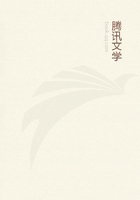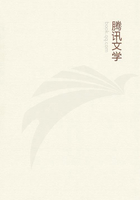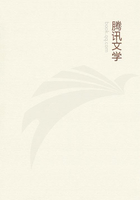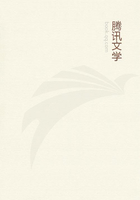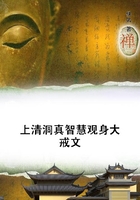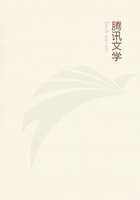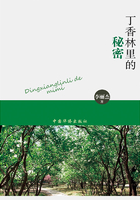"For my part, I cannot sufficiently bewail the condition of the reformed churches, who are come to a period in religion, and will go at present no farther than the instruments of their reformation. The Lutherans cannot be drawn to go beyond what Luther saw; . . . and the Calvinists, you see, stick fast where they were left by that great man of God, who yet saw not all things. This is a misery much to be lamented; for though they were burning and shining lights in their time, yet they penetrated not into the whole counsel of God, but were they now living, would be as willing to embrace further light as that which they first received."--D. Neal, History of the Puritans, vol. 1, p. 269.
"Remember your church covenant, in which you have agreed to walk in all the ways of the Lord, made or to be made known unto you. Remember your promise and covenant with God and with one another, to receive whatever light and truth shall be made known to you from His written word; but withal, take heed, I beseech you, what you receive for truth, and compare it and weigh it with other scriptures of truth before you accept it; for it is not possible the Christian world should come so lately out of such thick antichristian darkness, and that full perfection of knowledge should break forth at once."--Martyn, vol. 5, pp. 70, 71.
It was the desire for liberty of conscience that inspired the Pilgrims to brave the perils of the long journey across the sea, to endure the hardships and dangers of the wilderness, and with God's blessing to lay, on the shores of America, the foundation of a mighty nation. Yet honest and God-fearing as they were, the Pilgrims did not yet comprehend the great principle of religious liberty. The freedom which they sacrificed so much to secure for themselves, they were not equally ready to grant to others. "Very few, even of the foremost thinkers and moralists of the seventeenth century, had any just conception of that grand principle, the outgrowth of the New Testament, which acknowledges God as the sole judge of human faith."--Ibid., vol. 5, p.
297. The doctrine that God has committed to the church the right to control the conscience, and to define and punish heresy, is one of the most deeply rooted of papal errors. While the Reformers rejected the creed of Rome, they were not entirely free from her spirit of intolerance. The dense darkness in which, through the long ages of her rule, popery had enveloped all Christendom, had not even yet been wholly dissipated. Said one of the leading ministers in the colony of Massachusetts Bay: "It was toleration that made the world antichristian; and the church never took harm by the punishment of heretics."--Ibid., vol.
5, p. 335. The regulation was adopted by the colonists that only church members should have a voice in the civil government. A kind of state church was formed, all the people being required to contribute to the support of the clergy, and the magistrates being authorized to suppress heresy. Thus the secular power was in the hands of the church. It was not long before these measures led to the inevitable result --persecution.
Eleven years after the planting of the first colony, Roger Williams came to the New World. Like the early Pilgrims he came to enjoy religious freedom;but, unlike them, he saw --what so few in his time had yet seen--that this freedom was the inalienable right of all, whatever might be their creed. He was an earnest seeker for truth, with Robinson holding it impossible that all the light from God's word had yet been received. Williams "was the first person in modern Christendom to establish civil government on the doctrine of the liberty of conscience, the equality of opinions before the law."--Bancroft, pt. 1, ch. 15, par. 16. He declared it to be the duty of the magistrate to restrain crime, but never to control the conscience.
"The public or the magistrates may decide," he said, "what is due from man to man; but when they attempt to prescribe a man's duties to God, they are out of place, and there can be no safety; for it is clear that if the magistrates has the power, he may decree one set of opinions or beliefs today and another tomorrow; as has been done in England by different kings and queens, and by different popes and councils in the Roman Church; so that belief would become a heap of confusion."--Martyn, vol. 5, p. 340.
Attendance at the services of the established church was required under a penalty of fine or imprisonment. "Williams reprobated the law; the worst statute in the English code was that which did but enforce attendance upon the parish church. To compel men to unite with those of a different creed, he regarded as an open violation of their natural rights; to drag to public worship the irreligious and the unwilling, seemed only like requiring hypocrisy. . . . 'No one should be bound to worship, or,' he added, 'to maintain a worship, against his own consent.' 'What!' exclaimed his antagonists, amazed at his tenets, 'is not the laborer worthy of his hire?'
'Yes,' replied he, 'from them that hire him.'"-- Bancroft, pt. 1, ch. 15, par. 2.
Roger Williams was respected and beloved as a faithful minister, a man of rare gifts, of unbending integrity and true benevolence; yet his steadfast denial of the right of civil magistrates to authority over the church, and his demand for religious liberty, could not be tolerated. The application of this new doctrine, it was urged, would "subvert the fundamental state and government of the country."--Ibid., pt. 1, ch. 15, par. 10. He was sentenced to banishment from the colonies, and, finally, to avoid arrest, he was forced to flee, amid the cold and storms of winter, into the unbroken forest.
"For fourteen weeks," he says, "I was sorely tossed in a bitter season, not knowing what bread or bed did mean."

